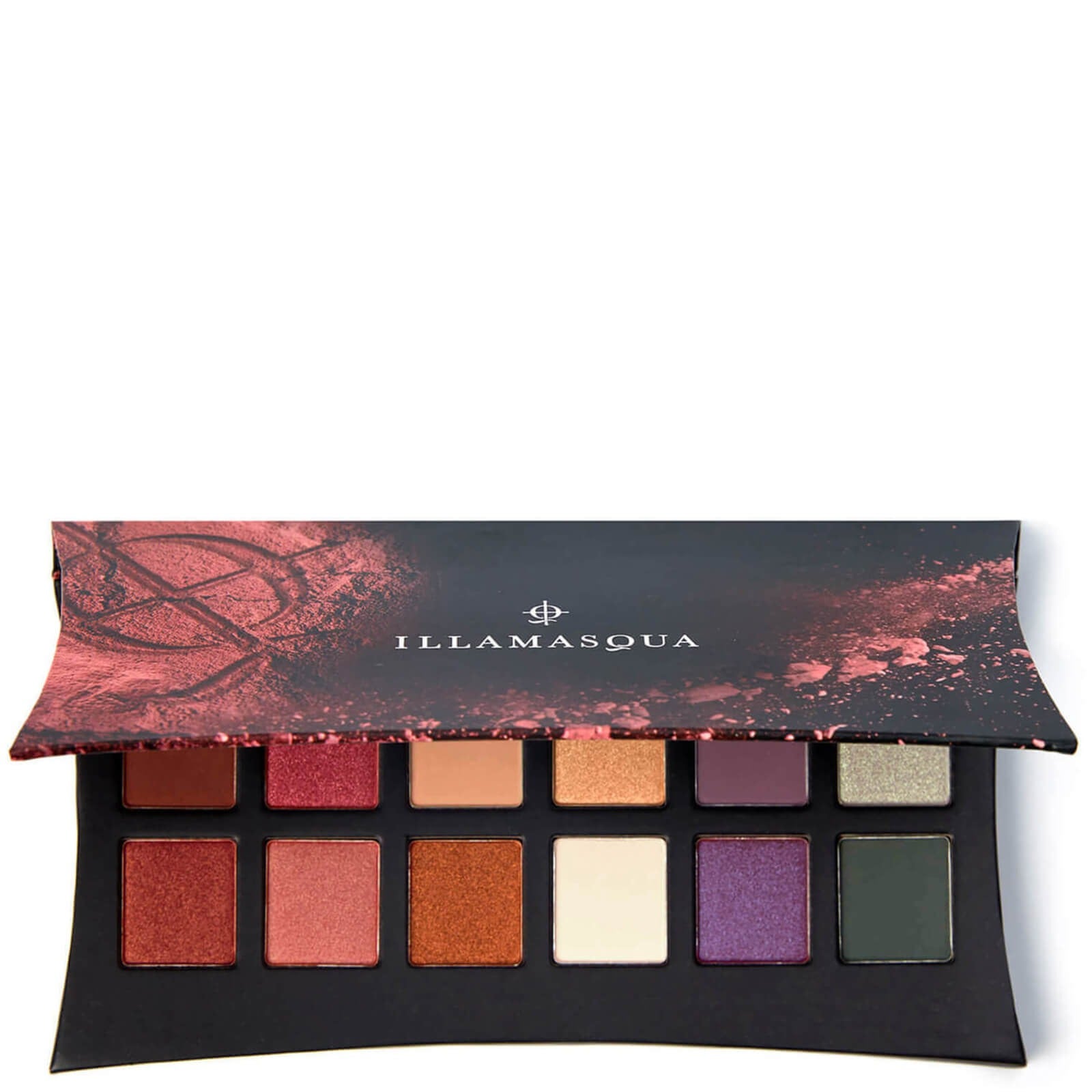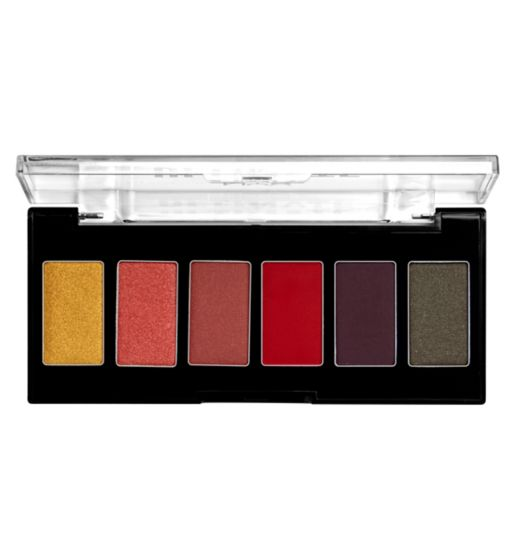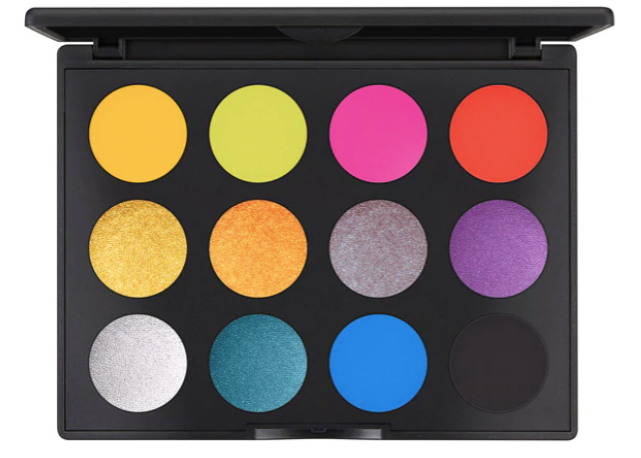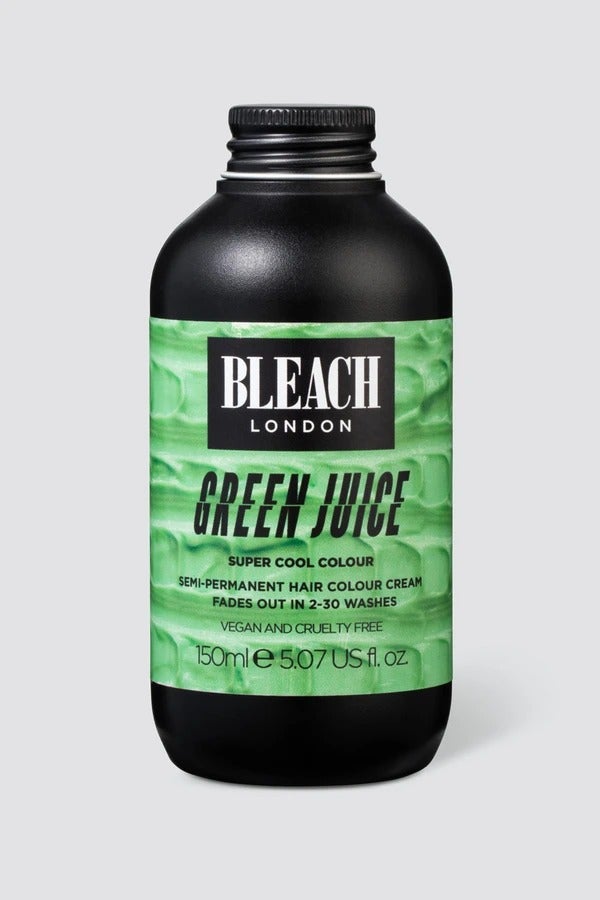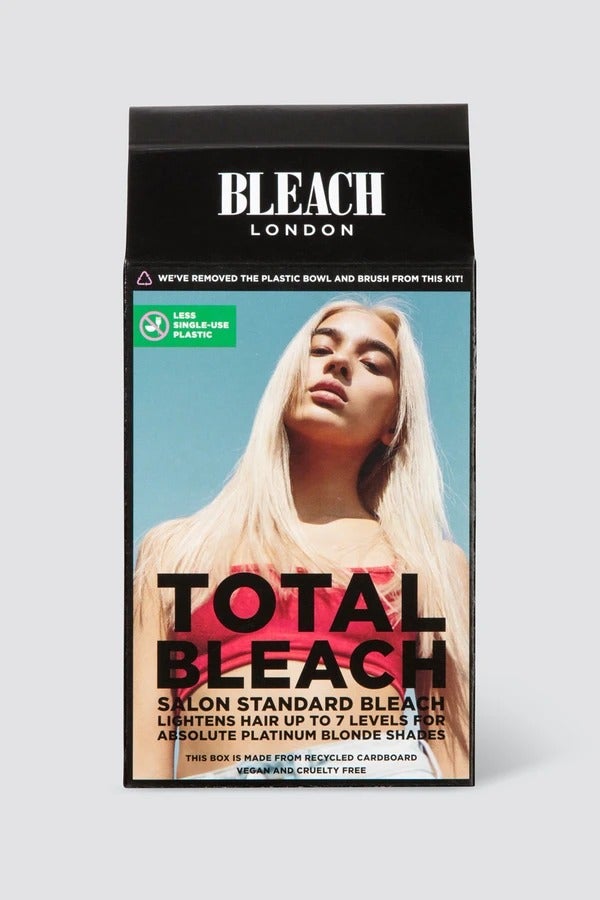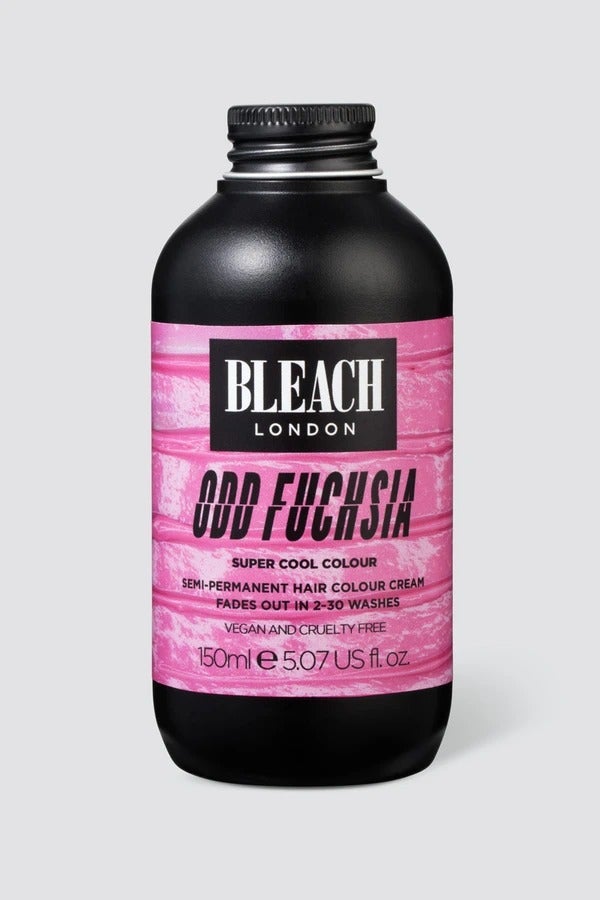Former scene kids know one thing to be true: scene culture never really died. While Attack Attack! may have called it quits and selfies taken from dizzying heights disappeared with the end of MySpace, scene culture is alive and well. And it has found a new space on TikTok.
Emo's brightly-coloured big sister is distinctive, but of course, scene is not just an aesthetic. Like the mid to late '00s, scene culture in 2020 is built on a strong sense of community and shared interests, in particular music. Post-hardcore, pop punk and electronic bands like Cute Is What We Aim For, Escape The Fate and 3OH!3 still reign supreme. While music taste may vary from person to person, one thing that brings scene kids together and continues to carve out its niche is the strong look. In particular hair and makeup.
AdvertisementADVERTISEMENT
“
"To me, scene makeup is a statement; a middle finger to anyone who would insist that people behave or present a certain way for the sake of other people's comfort."
Scene TiktokKer, Haley
”
With so many teens and young people intrigued by current trends, fashion and beauty hacks are incredibly popular on TikTok, and scene style is a big driver. The hashtag #scenemakeup has amassed 820.3K views and counting, as TikTokkers film snappy makeup tutorials for winged liner, extreme contouring and neon eyeshadow. Scene hair is a big deal on TikTok, too. You'll uncover DIY razor cuts, how to apply extensions and the best beauty products on a budget. It's similar on Instagram, with #scenehair boasting 1.6M hashtags as individuals share striking colour combinations. But for the scene community in 2020, hair and makeup is deeper than surface level.
"To me, scene makeup is a statement; a middle finger to anyone who would insist that people behave or present a certain way for the sake of other people's comfort," says scene TikTokker Haley, 23, who helps viewers navigate scene style and beauty on a budget. "It's about having fun on your own terms. It's unrestricted self expression." Beauty and style is a big part of Haley's scene identity. "The bold colours make me feel more confident and dressing this way makes me feel like I'm a part of something interesting and positive."
In fact, subcultures like scene culture thrive on platforms like TikTok, according to Trina Albus, social media expert and founder of MAGENTA Agency, an influencer marketing agency for beauty brand. Beauty is enormous on TikTok anyway says Trina, but the platform rewards authenticity and individuality as people are feeling fatigue on channels like Instagram. "All the influencer content is starting to look the same," Trina adds. "It's too perfect and doesn't reflect reality, especially during a global pandemic."
AdvertisementADVERTISEMENT
“
"Ten years ago, scene had a certain look to it that I believe was unintentionally exclusionary. I see all sorts of people embracing scene culture now."
Haley
”
Dominic Skinner, M·A·C global senior artist, believes that there is more of an emotional connection to the scene aesthetic seen online today. "Makeup has always played an important role in defining a group," he tells Refinery29. "It's a form of identity that allows individuals to express who they are and which crowd they belong to. It's about feeling connected to something when everything around you feels alien." And in the age of coronavirus when things are unpredictable, many physical connections have been temporarily lost and events cancelled, visual identity means so much more to the scene community now. "Referencing a culture or a style that has been popular in the past is a brilliant way to get a message across about society and the present times we are living in," agrees Pablo Rodriguez, Illamasqua's director of artistry. "Makeup is an easy way to portray that. It's experimental, affordable and also temporary, so can be switched up with the times."
For Haley, the scene aesthetic has been a support during lockdown, especially on TikTok. "It brings so many people together and, at least for me, the community has been one of the most supportive and active avenues of human interaction I've been able to indulge in during the pandemic," she says. "All of it has made me feel so much less alone, and the aesthetic itself has brought some much needed colour and excitement into my life when everything else is so harsh." Think clashing shades like purples and oranges, or greens mixed with golds and browns, says Pablo, who champions the Movement Palette, £38.
AdvertisementADVERTISEMENT
TikTokker Crystal fell in love with scene makeup when she was 12 years old. Now 24, the beauty aesthetic plays an important part in her role as a makeup artist. "I literally eat, sleep, breathe makeup and beauty overall but never in a 'vain' way," she tells Refinery29. "To me, scene culture means embracing who you are and embracing the alternative side of fashion, beauty and music. Part of me has always been into the more dramatic and different side of beauty, especially. It makes me happy that it is a part of who I am." Crystal and a friend have since been inspired to create their very own online makeup brand, SMUG Makeup. "It bends the rules and is inclusive to all."
Thanks to social media, the scene beauty aesthetic has taken strides towards diversity and inclusion. On TikTok, scene hair tutorials show a variety of hair types and textures, while the #altblackgirl hashtag has 19.8M views, with posters also tagging 'scene' and 'scene queen'. Haley concurs, "Ten years ago, scene had a certain look to it that I believe was unintentionally exclusionary. As someone with a larger body type I often felt that I couldn't 'be scene' to the fullest extent back in the day. You didn't see many different body types, hair types or people of colour among the 'famous' or 'ideal' scene personalities and examples." For Haley, Crystal and many other scene individuals using TikTok and Instagram to express themselves, this is a welcome change. "I see all sorts of people embracing scene culture now and being welcomed into the community. I think that's really great," says Haley. Crystal agrees, "Despite the divide, places like TikTok have created a space where we can all feel inclusive when it comes to the alternative scene."
AdvertisementADVERTISEMENT
Beauty has come a long way, too, especially hair innovation. Arguably the most distinctive aesthetic marker of scene culture, hair takes on all manner of shades and shapes: neons, creative colour placement and, of course, lots of backcombing. In lockdown especially, TikTokkers have taken to the app in droves to show followers how they cut, dye and style their hair with quick tutorials. Erik Pascarelli, stylist at BLEACH London in Soho says, "When I was a scene kid I would change my hair colour every week, but there wasn't as much education out there to do it well." Now, brands like BLEACH, La Riche Directions and Lime Crime have made DIY bright hair easy, while BLEACH offers smart 1-1 digital appointments to guide people through the at-home colouring craze.
For Freddie Leubner, stylist at BLEACH, hair is a creative way to signify which tribe you belong to. "This is especially important in a world which is increasingly eroding communal living and ritual," Freddie tells R29. BLEACH stylist Jadah Dale pinpoints pink and orange as popular tones among the scene community but her personal favourite is green. "We have a colour called Green Juice, which is a pastel, minty colour and it doesn't stain the hair with stubborn tones," she says. "It doesn't have to be an all over block colour, either. Bleach Bits and Dip Dye are salon signatures, but a trend I love is an intentional grungy root or 'root clash' using a different colour."
AdvertisementADVERTISEMENT
Ultimately, scene culture has evolved and thanks to trend-led apps like TikTok and Instagram in particular, it has taken on a newer, more positive meaning. "For me, and I think a lot of others, scene has become about embracing nostalgia and overcoming judgement," says Haley. "A lot of people, myself included, felt bullied out of our scene phases for a while because of cringe culture. Scene has become about owning your style and reclaiming your interests. It's become empowering." And nothing captures that power more than how we choose to navigate our own unique beauty rituals.
Refinery29's selection is purely editorial and independently chosen – we only feature items we love! As part of our business model we do work with affiliates; if you directly purchase something from a link on this article, we may earn a small amount of commission. Transparency is important to us at Refinery29, if you have any questions please reach out to us.
AdvertisementADVERTISEMENT







